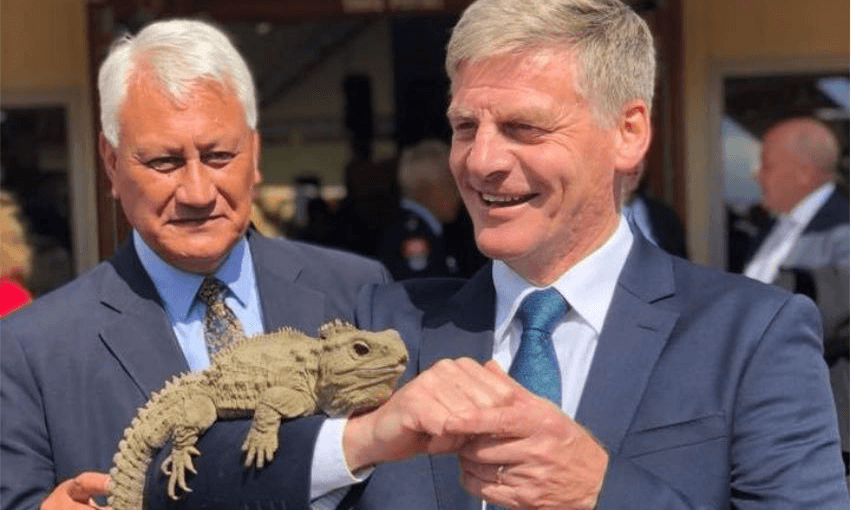By using our national day to engage with iwi from all over the country, we send a message that we’re serious about the spirit of the Treaty instead of being where there will be the most cameras, writes Nuk Korako, National’s spokesperson for Māori Development
Waitangi Day is a day for discussion; a day for remembering; and a day for moving forward not, as some believe, a day for highlighting divisions. Waitangi Day should be – and for most of us is – a day to look back at what has been and come together to look at what can be.
This year, I joined Bill English for Ngāi Tahu’s Waitangi Day celebrations at Te Rau Aroha Marae in Awarua. The decision to go south this year was based on our belief that Waitangi Day is a day important to all Māori across New Zealand, and was in no way a slight on Ngāpuhi, as some have suggested.
The rich history and tikanga felt within the Treaty Grounds made it an undeniably special place to spend Waitangi Day.
We must always remember, the Treaty has signatories across the country, so it is only right to travel to those places like Awarua, in acknowledgement of that. As did our National Party members who attended Waitangi this year. Bill, I and a number of our colleagues spent the day engaging and discussing the progress and the work still to do between the Crown and iwi across New Zealand.
Iwi everywhere have their own stories of the Treaty and what Waitangi Day means to them and that includes Ngāi Tahu. One hundred and seventy eight years ago, on 10 June 1840, Ngāi Tahu Rakatira John Tuhawaiki, Kaikoura Whakatau, and Te Matenga Taiaroa signed the Treaty of Waitangi on Ruapuke Island just across from Awarua. Iwikau and Hone Tikao had previously signed at Akaroa on 30 May. Hone Karetai and my tipuna Korako were to sign in Otago on 13 June 1840.
Ngāi Tahu’s Treaty claims began in 1849 with my tipuna Matiaha Tiramorehu and continued for just on 150 years until, in 1996, under the leadership of Tā Tipene O’Regan, and National Government Treaty Minister Sir Doug Graham, Ngāi Tahu settled our treaty claim.
I am enormously proud that Ngāi Tahu has gone on to become one of Aotearoa’s iwi success stories and is using that success to improve outcomes for rangatahi. Since the settlement, Ngāi Tahu has invested $320 million into education, cultural and social development, and on protecting our environment – things that all New Zealanders care deeply about.
These are the stories I share on Waitangi Day. They’re important because they’re the stories of Māori everywhere – not just in the South Island – and they’re stories that should be heard on Waitangi Day.
By using our national day to engage with iwi from all over the country, we send a message that we’re serious about the spirit of the Treaty instead of being where there’ll be the most cameras.
The Treaty, to other iwi in New Zealand, does not begin and end at Waitangi. The Treaty is not about a place – it’s about people. It’s not a location – it’s an agreement. And it was an agreement made with a large number of Rakatira across a number of different locations. And the debates that were held in those various locations were as deep, hot, and contentious as the ones that occurred at Waitangi all those decades ago.
Bill’s decision to spend Waitangi in Awarua is not a rejection of Ngapuhi or of others who attend Waitangi. It’s about the rest of the iwi of Aotearoa whose men and women signed the treaty 178 years ago.
The history of protest at Waitangi, and the actions of protesters in drawing attention to themselves is a feature of that part of the country. It does not and never has represented the celebrations that occur in other parts of Aotearoa. From Ōrākei in Auckland to Awarua in Bluff and even across to the Chatham Islands, February the 6th is a day of whānau, community, and a coming together of Māori and Pākehā to celebrate an event that defines us as a nation.
This section is made possible by Simplicity, the online nonprofit KiwiSaver plan that only charges members what it costs, nothing more. Simplicity is New Zealand’s fastest growing KiwiSaver scheme, saving its 10,500 plus investors more than $3.5 million annually. Simplicity donates 15% of management revenue to charity and has no investments in tobacco, nuclear weapons or landmines. It takes two minutes to join.

